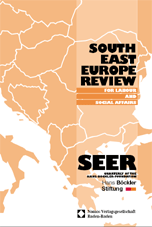FDI: good or bad?
FDI: good or bad?
Author(s): Zoltán ÁdámSubject(s): Economy
Published by: Nomos Verlag
Keywords: Foreign investment in CEE countries;
Summary/Abstract: Foreign direct investment (FDI) is one of the most salient features of, and the most powerful sources for, the social, economic and political transition in central and eastern Europe (CEE). FDI is both a consequence of, and a reason for, social and economic transformation. Post-communist countries that have embarked upon the capitalist transformation of their economies are in heavy need of capital resources. The necessity of foreign capital has been a function of the economic situation in which post-communist countries started the transition: with generally inefficient industries, and agriculture and service sectors that had to be modernised in order to become internationally competitive. Economic modernisation, however, has necessitated enormous amounts of capital, which has been mostly absent in post-communist economies. This paper aims at collecting arguments for and against foreign direct investment. The overall assessment of the role played by FDI in central and eastern Europe is obviously beyond the scope of the present work. I have, therefore, limited my interest here to an overview of the most important theoretical considerations.
Journal: SEER - South-East Europe Review for Labour and Social Affairs
- Issue Year: 2002
- Issue No: 03
- Page Range: 73-87
- Page Count: 15
- Language: English

